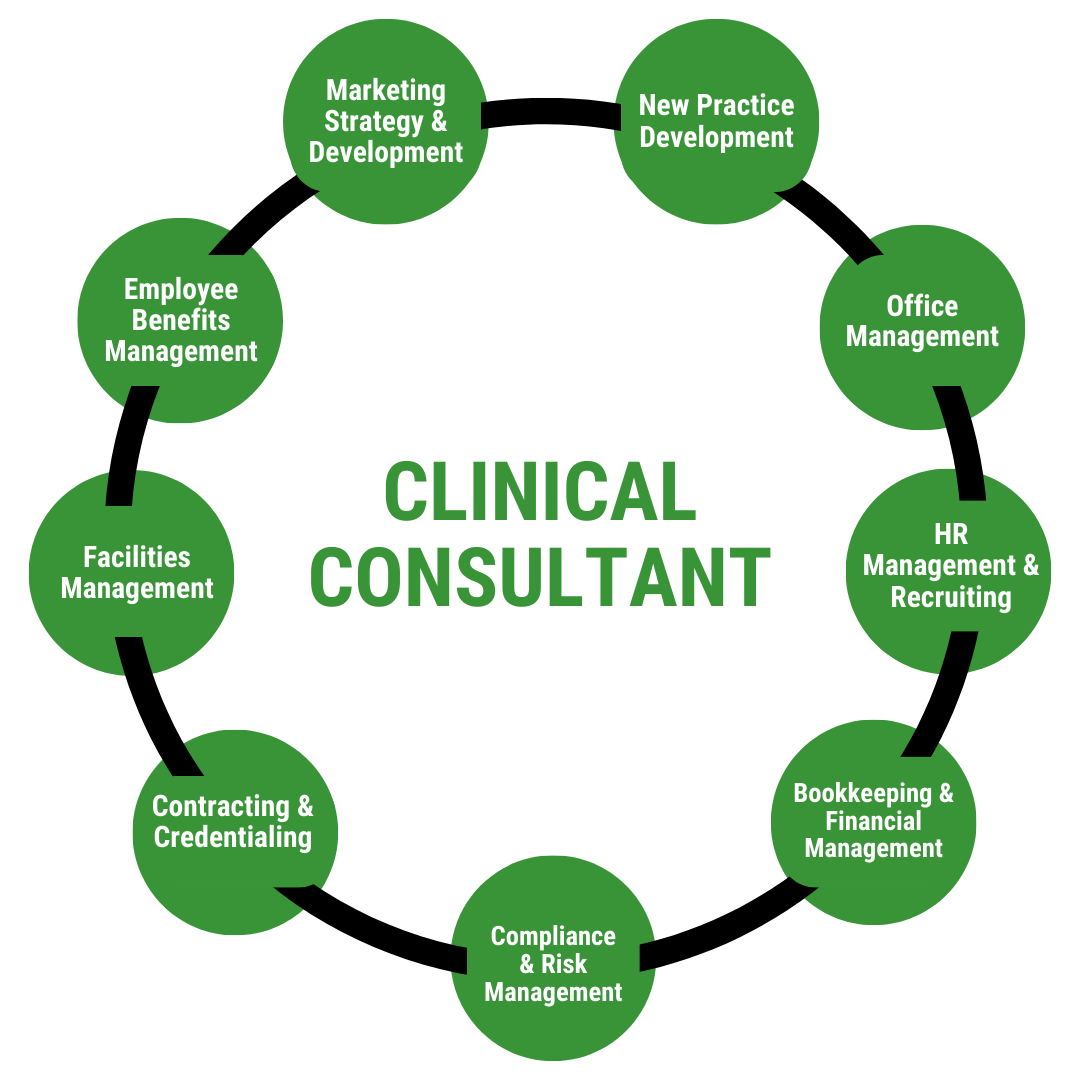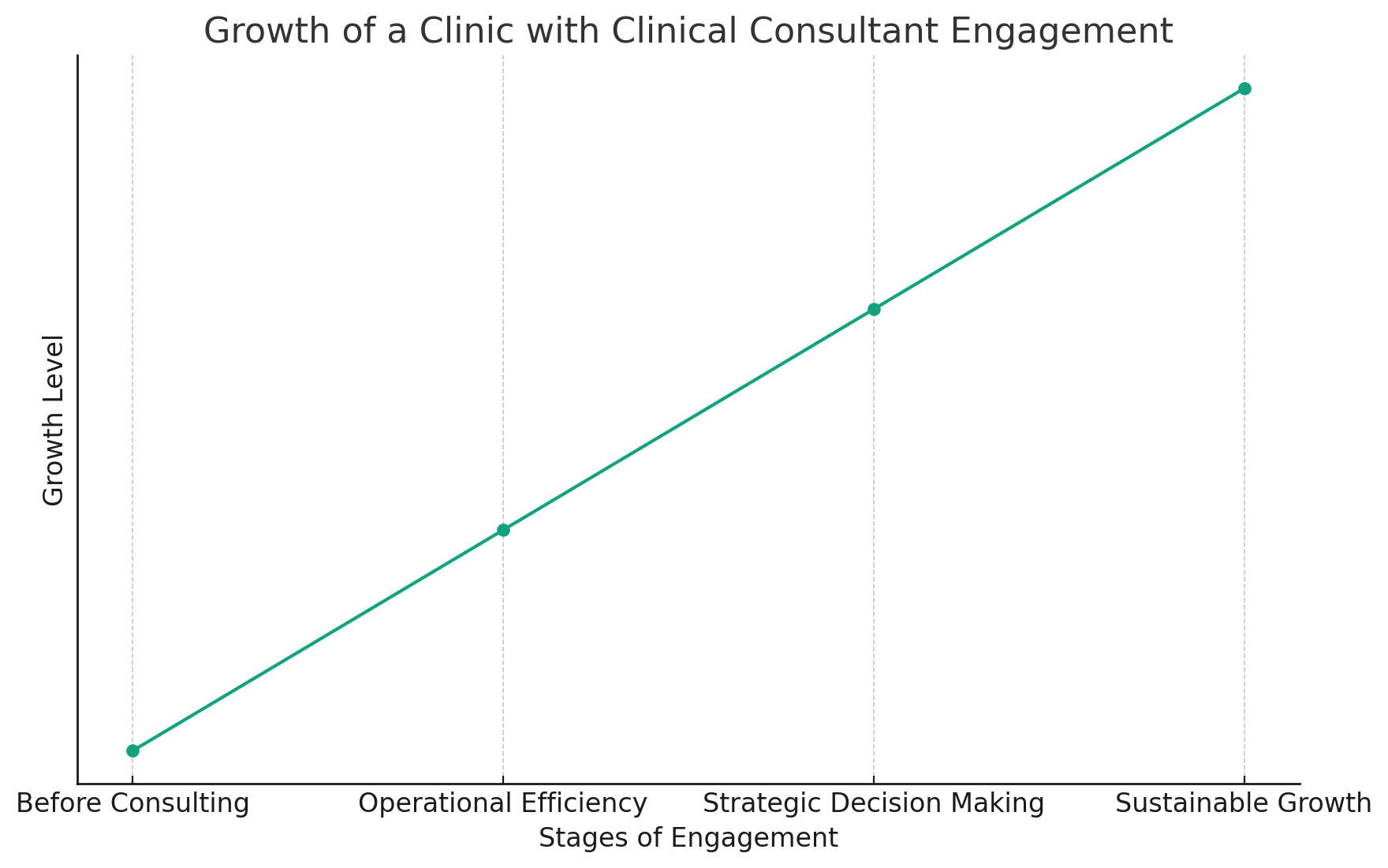What is a Clinical Consultant?
Written By Clinical Consultants

Did you know that behind every successful clinic, there’s often a clinical consultant fine-tuning its operations?
Running a healthcare clinic involves more than just providing medical services. It’s a complex business requiring expertise in various domains.
This blog will dive into how clinical consultants are not just healthcare experts but also skilled business professionals, essential for the success of healthcare clinics.
What is a Clinical Consultant?
A clinical consultant is often perceived as an expert in healthcare matters. However, they are also business professionals adept in guiding clinic owners through the intricacies of running a successful healthcare business.
The Multi-Faceted Role of a Clinical Consultant in Clinic Management
Clinical consultants offer comprehensive guidance to clinic owners, ensuring operational efficiency, legal compliance, and financial health.
Key Roles:
Legal Compliance: Ensuring that the clinic operates within the legal framework, adhering to healthcare regulations and laws.
Physician Credentialing: Streamlining the process of credentialing each physician, ensuring they meet necessary standards and qualifications.
Human Resources Management: Advising on hiring practices, staff management, and employee development.
Business Planning: Assisting in creating and implementing a robust business plan tailored to the clinic’s needs.
Marketing Strategy Development: Discovering and implementing new marketing strategies to enhance the clinic’s visibility and patient acquisition.
Financial Management: Providing insights on managing finances, bookkeeping, and budgeting to ensure a healthy financial status.

How Consultants Empower Clinic Owners for Success
Clinical consultants play a critical role in helping clinic owners navigate the complexities of healthcare management, ultimately leading to a successful and sustainable business.
Impact on Clinic Success:
Operational Efficiency: Streamlining clinic operations for maximum efficiency and patient satisfaction.
Strategic Decision Making: Guiding clinic owners in making informed business decisions.
Sustainable Growth: Laying the foundation for long-term growth and profitability.

The Path to Becoming a Clinical Consultant
Becoming a clinical consultant requires a blend of healthcare knowledge and business acumen. Advanced degrees in healthcare administration, along with experience in healthcare and business management, are typical pathways.
Essential Skills:
Strategic Thinking: Ability to develop and implement long-term business strategies.
Regulatory Knowledge: Deep understanding of healthcare laws and regulations.
Financial Acumen: Expertise in financial management and budgeting.
The Future of Clinical Consulting in Healthcare Business
As the healthcare industry evolves, clinical consultants continue to be pivotal in integrating business strategies with healthcare delivery, ensuring clinics not only provide top-notch care but also thrive as successful enterprises.
Emerging Trends:
Digital Marketing: Leveraging digital platforms for clinic promotion and patient engagement.
Healthcare Technology Integration: Incorporating technology for improved healthcare delivery and administration.
Data-Driven Decision Making: Utilizing analytics for informed business decisions.
Clinical consultants are super helpful in the successful operation of healthcare clinics
blending healthcare expertise with business experience. Their guidance is invaluable for clinic owners aiming for operational excellence and business growth.
